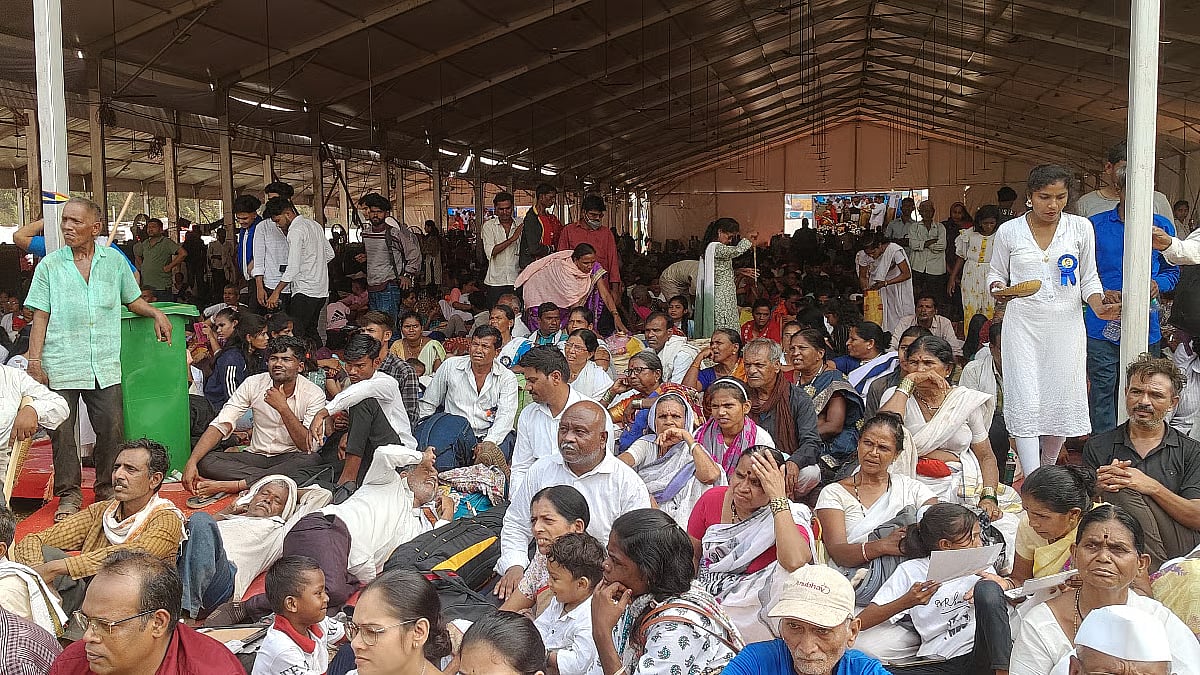India was, is and always will be, the land many foreigners travel to to procure priceless handlooms and handicrafts, but does the local populace support this age-old endeavour? We spoke to a few organisations and their founders to get a better understanding.
An associate member of Paramparik Karigar
If you are a handicraft-loving Indian, chances are you would be a regular at Paramparik Karigar’s melas. An association started in 1996 by six craftsmen with doyen Roshan Kalapesi, because they felt they needed to come together to sustain their livelihoods through crafts instead of relying on others. That the focus remains squarely on the craftsmen was evident when the member we spoke to refused to have her name printed saying, “...the karigars are the office bearers; we, associate members are here to aid them – so why would you need my name?”

Vidya Balan |
She shared, “The artisans value dignity highly and only need the platform of exhibitions to present their ware.” In fact, craftsmen contributed 10 percent of their sales to hold the exhibitions as well, making the organisation quite self-sustaining. During the lockdown, PK has organised Sahayoj Sales, wherein for a week they display, online, an artist and their artefacts for prospective buyers.
She believes companies can help, “If they decide to send handicrafts as festive gifts and give artisans enough notice to create them (since bulk orders need a few months to prepare), craftsmen will have a steady source of income and know their handiworks are cherished.”
Sarmistha Ray, Founder of Bhoomijacrafts.com
Sarmistha chucked a lucrative career to follow her passion – handicrafts. She believes, “India has a plethora of art and handicraft makers, from whom people would earlier buy artefacts when they travelled but now that’s completely stopped.” About big brands, she avers, “...they buy local goods cheap, spend on advertising and sell high. So, local artisans/brands have to learn to sell online and advertise their goods through online communities in order to reach buyers without involving middlemen.”
“Artisans lack manpower and funds to build an e-market platform, so all governmental initiatives regarding the same are appreciated, while the media could aid in promotions via awareness programmes. While there’re some voices speaking about handicrafts, it’s not sufficient.”

Kangana Ranaut |
Sarmistha has an interesting take on the learn-art-at-home trend. “In the lockdown, many artists are teaching their crafts online and after taking lessons many students are starting their own ventures and having the advantage of market reach, they do well. Without criticising anybody’s efforts, I think such efforts negate the need to buy from rural artisans. Secondly, most remote places face a dispatch delay normally, and now, specially. Since artisans usually dwell in such places, they need help with better courier and transport services, etc. to be accessible to consumers.” She loves the rusticity of handicrafts and her 3-year-old venture, Bhoomija Crafts, stocks handicrafts from across India but she’s unsure how artisanal start-ups will fare in the outbreak.
Payal Talreja, Founder of Tvam Handcrafted
About six years ago, Payal broke away from corporate life, and on a holiday to Gujarat she realised that “...while it was impossible to sell yardage; however sarees, dupattas, etc. were marketable.” Today, Tvam works with about 17 different weavers across 11 states of India.
“Traditionally, Diwali is the winter sales season while March is for spring exhibitions. This March, when the pandemic struck, it left weavers with huge stocks and zero sales,” she says. “Artisans never beg, as there’s a dignity and pride in carrying forward a legacy. So, I called up the ones I know and asked if we could help, and only one requested for some money - all others sought help in selling the stock.”
She reflects, “Most countries place a premium on handmade, while many of our weavers’ societies sell handloom and non-handloom sarees at the same price. Plus, weavers are rarely entrepreneurial; at Tvam we’re known for our engagement with weavers to help them market their products better. But we need government policies to back us.”
Payal asks ordinary people to also come forward and “buy handmade- no matter if it’s a stole, dupatta, saree, statue or necklace for birthdays, anniversaries or Diwali. There’re enough things in every price range. Support artists and artisanal products. They need it.”
Saloni Sacheti, Founder of Baansuli (Bamboo Artisan Socio Economic Upliftment Initiative)
Ex-SBI Youth for India fellow Saloni believes “...today’s generation is more responsible and aligned towards eco-friendliness and sustainability. So there’s a push towards the handmade, but more is needed. Because appreciating artefacts and artisans alone won’t suffice, regular sales are very important.”
She agrees that the government has launched loan schemes as well as state handlooms boards to showcase artisanal products for sale. Social enterprises like Baansuli are important too since they empower tribal artisans economically to make, in this case, handcrafted contemporary bamboo jewellery in the Dangs district, Gujarat. Dang’s 98-percent tribal population sustains itself chiefly on agriculture and manual labour. Given the region’s arid nature, most are forced to migrate to cities. She proves that “social enterprises are thus necessary to see conditions (in this case, huge bamboo production) in a new light and seek novel solutions (bamboo jewellery) to create sustainable livelihood for local artisans and promote their craft.”
Saloni states in supporting a local craftsperson/business, you:
1) Keep money in your local economy,
2) Invest in entrepreneurship,
3) Support local jobs,
4) Celebrate the uniqueness of your community, and
5) Encourage community.
As if that was not enough, Payal convinces us poetically: “There’s a beauty, an earthiness about handmade, with an unmatched uniqueness. It’s humbling to think that we are capable of creating such beauty.”










